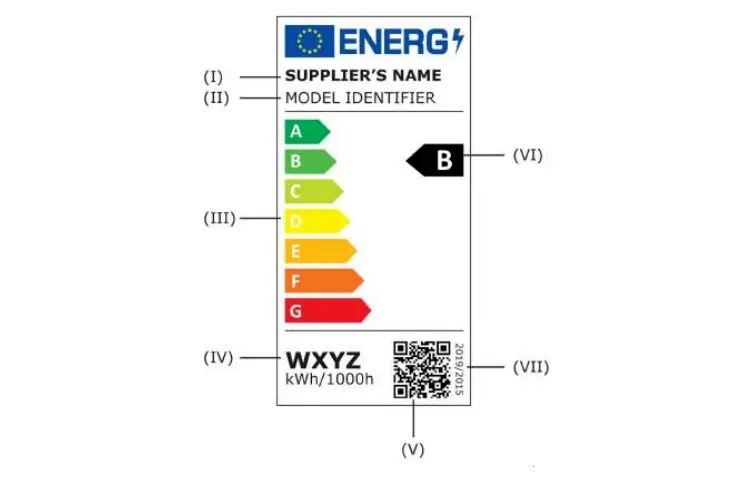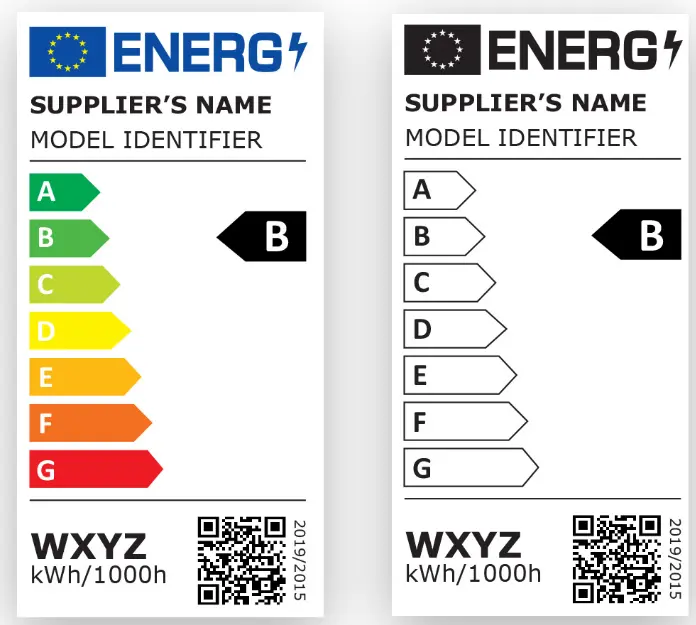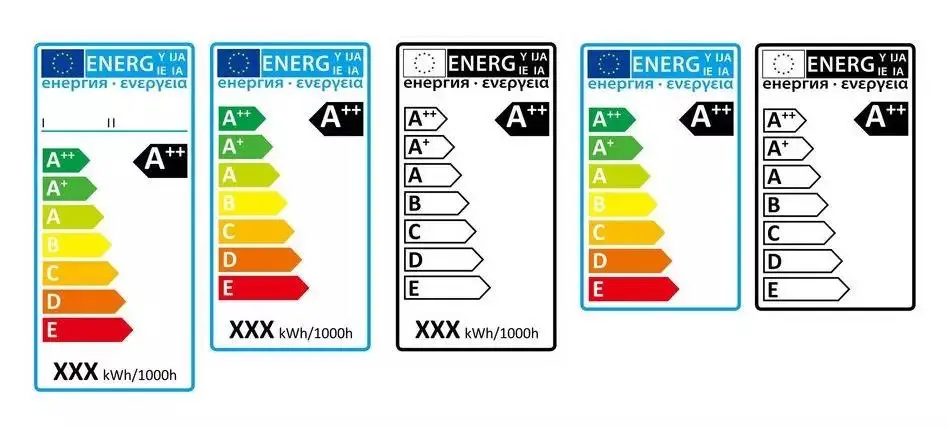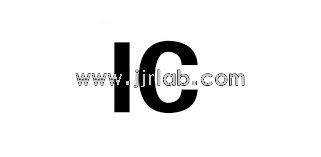
Introduction to EU ErP Certification Directive 2009/125/EC
The EU ErP (Energy-related Products) Certification, known as the Energy-related Products Directive, is a directive established by the European Union to regULate the energy efficiency and labeling requirements for energy-related products. The purpose of this directive is to ensure that energy-efficient products sold in the EU market meet minimum efficiency standards, thereby REDucing energy consumption and environmental impact.

This certification acts as a stringent referee, ensuring that energy-efficient products circulating in the EU market possess high energy-saving performance. Through detailed regulations and standards, it sets clear energy efficiency requirements for products, allowing consumers to clearly understand the energy efficiency status of the products they purchase.
Introduction to the EU erp directive:
The ErP Directive (2009/125/EC) marks a significant change by extending the scope of the original EuP Directive to include Energy-related Products (ErP). However, other aspects, such as the establishment of implementing measures, have not changed significantly. The new directive (ErP Directive) coming into effect means that more products exported from China to the EU will be subject to this directive, urging relevant exporting companies to prepare adequately in response.
The EU stipulates that all electronic and electrical products sold in Europe must meet the requirements of ErP testing or ErP certification (energy-saving requirements for products related to energy consumption).
The New CE certification in the EU—ErP Directive—2009/125/EC Released:
Products subject to ErP testing include:
- Energy-saving lamps: NO.244
- AV products, IT products: NO.1275
- TV products: NO.642
- Set-top boxes: NO.107
- Ballasts, fluorescent lamps: NO.245
- External power supplies, adapters, chargers: NO.278

New European Energy Efficiency Regulations:
On April 18, 2023, the European Commission (EC) released the new Ecodesign Regulation (EU) 2023/826, which outlines the ecodesign requirements for the energy consumption of household and office electronic and electrical equipment in off mode, standby mode, and network standby mode. The new regulation came into effect on May 9, 2023, and will be mandatory from May 9, 2025, simultaneously repealing the old regulations (EC) No 1275/2008 and (EC) No 107/2009.
Scope of EU ErP Energy Efficiency Certification:
ErP energy efficiency certification covers a wide range of products, including household appliances, lighting products, electronic devices, and industrial equipment. For each product category, corresponding energy efficiency labels and marking requirements exist.
The scope of ErP product certification in Europe includes several key areas, such as:
2.1 Household appliances: electric irons, rice cookers, ovens, hair dryers, straighteners, kettles, MICrowaves, induction cookers, heaters, household fans, range hoods, juicers, toasters, vacuum cleaners, household washing machines, water dispensers, refrigerators, freezers, air conditioners, humidifiers, dehumidifiers, electric blankets, ventilation fans, bath heaters, disinfection cabinets, solar water heaters, massage devices, treadmills, massage chairs, etc.
2.2 Audio-visual products: LCD TVs, VCDs, DVDs, audio systems, radios, set-top boxes, electronic musical instruments, multimedia players, etc.
2.3 IT products: switch power supplies, linear power supplies, chassis power supplies, portable solar chargers, USB-powered lights, fans, MP3s, MP4s, webcams, digital voice recorders, etc.
2.4 Lighting products: energy-saving lamps, LED lights, desk lamps, wall lamps, chandeliers, floor lamps, etc.
Additionally, the scope of ErP product certification also covers other fields, including but not limited to audio-visual products and IT products. Specific product ranges and requirements can be obtained from relevant websites or professional consultants.

Reasons for ErP Energy Efficiency Certification:
ErP energy efficiency certification primarily involves the following aspects:
3.1 Energy Efficiency: Evaluating the energy consumption of products throughout their lifecycle to determine their efficiency levels.
3.2 Lifecycle Assessment: Assessing the environmental impact of a product's entire lifecycle, including raw material acquisition, production, use, and disposal.
3.3 Energy Efficiency Labels and Markings: Ensuring that the energy efficiency labels and markings on products comply with EU requirements, enabling consumers to make informed purchasing decisions.
3.4 Energy Performance testing: Testing and verifying the energy performance of products to ensure they meet relevant efficiency standards.
3.5 Energy-saving Performance Evaluation: Assessing the energy-saving performance of products to determine if they meet the EU's minimum standards.
ErP Certification Testing Items:
ErP certification involves the following testing items:
4.1 A survival rate of ≥0.9 after 3600 hours (long testing duration, requirement effective from September 1, 2021);
4.2 A luminous flux maintenance rate of ≥0.8 after 3600 hours (long testing duration, requirement effective from September 1, 2021);
4.3 ≥15,000 switch cycles before failure (rated lifespan of 30,000 hours or ≥ half of the rated lifespan in hours);
4.4 Startup time <0.5 seconds;
4.5 Time to 95% luminous flux <2 seconds;
4.6 Early failure rate ≤5.0% (normal lighting for 1000 hours);
4.7 Color rendering index (CRI) ≥80%, and for outdoor or industrial use, CRI ≥65%;
4.8 Chromaticity tolerance ≤6db;
4.9 Power factor (PF) requirements:
- Power ≤2W, no PF requirement;
- 2W to 5W, PF >0.4;
- 5W to 25W, PF >0.5;
- Power >25W, PF >0.9.
4.10 Additional flicker tests: SVM, Pst LM.
In summary, the EU ErP Certification is a crucial tool for improving product energy efficiency, reducing energy consumption, and mitigating environmental impact. By implementing ErP certification, companies can enhance their product competitiveness, meet market demands, and contribute to environmental protection.
China JJR Laboratory provides EU ErP certification testing based on Directive 2009/125/EC. We are an IEC 17025 accredited laboratory located in China, capable of saving you 30% on certification costs.
Email:hello@jjrlab.com
Write your message here and send it to us
 Accelerated Ageing Test
Accelerated Ageing Test
 IP Ingress Protection Testing
IP Ingress Protection Testing
 How Does a Product Get an Energy Star Label
How Does a Product Get an Energy Star Label
 Is ROHS part of UL the same
Is ROHS part of UL the same
 What is Protection Class EN 60529?
What is Protection Class EN 60529?
 IP69 Certified Protection
IP69 Certified Protection
 California Energy Commission Testing Lab
California Energy Commission Testing Lab
 What Does the Canadian IC Mark Mean?
What Does the Canadian IC Mark Mean?
Leave us a message
24-hour online customer service at any time to respond, so that you worry!




